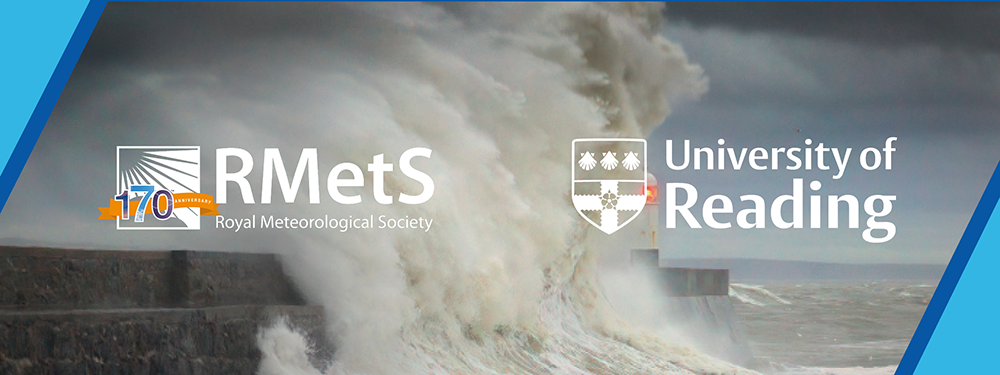

Presentation abstracts released for Meteorological Masterclass Series
Winter Storms in European Weather and Climate
The presentation abstracts are now available for the Meteorological Masterclass Series – a partnership between the Royal Meteorological Society and the University of Reading to provide additional training for professionals who work in Meteorology and Climate Science.
Wednesday 16 September: Synoptic storms in the North Atlantic
Helen Dacre: University of Reading Professor Lecturer in Dynamical Meteorology
Helen will give a review of synoptic extratropical cyclone research, starting from the skilfully constructed conceptual diagrams of the Bergen school in the 1920s. Careful analysis of multiple surface observations allowed the Norwegian scientists to deduce the existence of cold and warm fronts and to characterise a complete cyclone lifecycle. Since then, new observing systems and advances in computers have enabled the scientific research to expand and enrich our knowledge of extratropical cyclone structure and evolution.
In the second half of this masterclass Helen will look at the active areas of extratropical cyclone research, including analysis of sting jets, cyclone clustering and atmospheric rivers. She will discuss the remaining gaps in our knowledge, particularly regarding synoptic and mesoscale features associated with moist processes and their influence on predictability.
Wednesday 30 September: The impact of climate change on winter storms
Len Shaffrey: University of Reading / NCAS Professor of Climate Science
Understanding and predicting how winter extratropical winter storms might respond to climate change is essential for assessing future weather risks and informing climate change adaptation strategies. Len’s masterclass will cover the following areas:
- What do observational records tell us about how extratropical storms have varied historically?
- How do we expect extratropical storms to change in the future? How well do climate models represent extratropical storms and what do the latest climate models projections tell us?
- What are the remaining knowledge gaps in terms of how extratropical storms might respond to climate change?
Wednesday 14 October: Subseasonal predictions for European winter
Robert Lee: University of Reading / NCAS Research Scientist
Weather prediction on the subseasonal timescale typically covers the extended range (10+ days) up to around 30 days, and sometimes beyond. Robert’s masterclass will cover the key aspects related to subseasonal predictions of winter weather for the European region, including sources of predictability, models and forecasting, and applications of these forecasts. The interaction of subseasonal weather with, and its impact on, longer timescales will also be discussed.
Sources of subseasonal predictability come from many parts of the Earth system, including: the Madden-Julian Oscillation in the tropics and their teleconnections; weather regimes and low frequency oscillations in the mid-latitudes; the stratosphere; land surface processes; the oceans; and sea ice. Robert will present an overview of subseasonal statistical and numerical forecast model designs, configurations and complexity, along with methods of combining, assessing and verifying the models. Aspects relating to subseasonal forecast applications will touch on the energy, health, transportation, agriculture and water sectors, as well as extreme weather.
These webinars are free of charge and will be held from 3pm to 4.30pm with a masterclass presentation followed by the opportunity for questions and discussion with the speaker.
Whilst the webinars are part of a series, delegates can choose which they attend and attendance at all three is not compulsory.
Further events, in-person and online, are anticipated for 2021 when current restrictions may be lifted.
To view the speaker biographies and register for any of the webinars, please visit the events page here.

